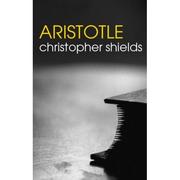Check nearby libraries
Buy this book

This work doesn't have a description yet. Can you add one?
Check nearby libraries
Buy this book

Previews available in: English
Subjects
Aristotle| Edition | Availability |
|---|---|
| 1 |
aaaa
|
Book Details
Table of Contents
Acknowledgements xi
List of Abbreviations xiii
Chronology xv
Introduction 1
Aristotle: Life and Works One 8
1.1 Aristotle in the Ancient Biographical Tradition 8
1.2 Aristotle’s Character 15
1.3 The Facts of Aristotle’s Life 17
1.4 Reading Aristotle 22
1.5 Aristotle’s Corpus and the Structure of the Aristotelian Sciences 28
1.6 Conclusions 34
Explaining Nature and the Nature of Explanation Two 36
2.1 Beginning in Wonder 36
2.2 Explaining Explaining 40
2.3 A Puzzle about Change and Generation 49
2.4 Matter and Form I 53
2.5 Matter and Form II 58
2.6 The Efficient Cause 64
2.7 The Final Cause I 68
2.8 The Final Cause II 78
2.9 Relations Among the Causes 90
2.10 Conclusions 94
Thinking Three 98
3.1 Definition 98
3.2 Essence and Accident 99
3.3 The Structure of Scientific Knowledge 106
3.4 An Overview of Aristotelian Logic 118
3.5 Dialectic 126
3.6 Univocity and Homonymy 133
3.7 Conclusions 143
Aristotle’s Early Ontology Four 146
4.1 The General Orientation of Aristotle’s Categories 146
4.2 Aristotle’s Work: The Categories 150
4.3 The Pre-Categories: an Anti-Platonic Conviction 151
4.4 The Theory of Categories: Kinds of Beings 157
4.5 Generating the Categories 159
4.6 The Fundamentality of Substance 172
4.7 A Puzzle about Bi-valence and Modality 181
4.8 Conclusions 192
Puzzles of Nature Five 196
5.1 Change 196
5.2 The Infinite 203
5.3 Time 206
5.4 Zeno’s Paradoxes of Motion 215
5.5 The Unmoved Mover 220
5.6 Conclusions 229
Substance and the Science of Being qua Being Six 232
6.1 Aristotle’s Metaphysical Interests 232
6.2 Aristotle’s Work: the Metaphysics 233
6.3 A Puzzle Remaining from the Physics 234
6.4 The Science of Being Qua Being 237
6.5 The Most Basic Principle of All Science 246
6.6 Substance Reconsidered: Form and Actuality 255
6.7 Conclusions 267
Living Beings Seven 270
7.1 Psychological Applications of Hylomorphism 270
7.2 The Soul: Life is Meant in Many Ways 271
7.3 Against Reductive Materialism and Substance Dualism 278
7.4 The Hylomorphic Analysis of Living Beings 285
7.5 A Problem for Soul–Body Hylomorphism 290
7.6 Perception and Thought 293
7.7 Conclusions 304
Living Well Eight 306
8.1 The Final Good for Human Beings 306
8.2 The Character of Human Happiness 310
8.3 Happiness and the Human Function 316
8.4 The Virtues of Character 323
8.5 A Puzzle about Akrasia 329
8.6 Friendship 334
8.7 The Final Good for Human Beings Reconsidered 340
8.8 Conclusions 346
Political Association Nine 350
9.1 The Orientation of Aristotle’s Political Theory 350
9.2 The Emergence and Priority of the Polis 353
9.3 The Best Constitution 363
9.4 An Ugly Aspect of Aristotle’s Political Naturalism? 368
9.5 Conclusions 373
Rhetoric and the Arts Ten 375
10.1 Aristotle’s Orientation in Rhetoric and the Arts 375
10.2 Rhetoric as a Craft 377
10.3 Poetic Production 381
10.4 Tragedy 385
10.5 Catharsis 386
10.6 Mimêsis 391
10.7 Prescriptive or Descriptive? 393
10.8 Conclusions 396
Aristotle’s Legacy Eleven 398
11.1 Aristotle’s Legacy into the Modern Period 398
11.2 Aristotle Today 402
Glossary 405
Notes 419
Bibliography 446
Index 453
Edition Notes
Routledge Philosophers
Classifications
ID Numbers
Community Reviews (0)
| September 16, 2021 | Edited by ImportBot | import existing book |
| January 2, 2013 | Edited by Khaled A. Hijleh | Number of pages + ISBN + Contents + Place published + Publisher name |
| June 15, 2012 | Edited by AMillarBot | remove edition notes from title (Routledge Philosophers) |
| April 28, 2010 | Edited by Open Library Bot | Linked existing covers to the work. |
| December 10, 2009 | Created by WorkBot | add works page |









